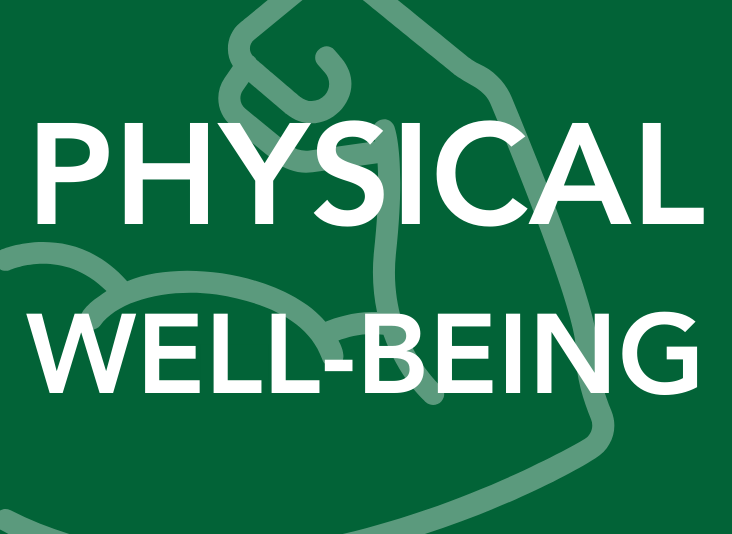6 Ways Physical Well-Being Promotes Safety
Worker happiness and physical fitness go hand in hand—and are crucial to safe and compliant environmental, health, and safety (EHS) operations. Regular promotion of physical well-being can help avoid operational shutdowns and maintain smooth organizational functioning.
There is a clear connection between physical well-being and safety—not to mention operational efficiency. And there are many benefits to physically fit workers: Happy, focused, and strong employees are simply better equipped to execute core functions—and react appropriately during sudden or unexpected incidents. Fit workers may be the difference between a minor operational hiccup and a full-blow disaster.
Indeed, physical well-being is another leg in the stool of EHS success, ranked among mental well-being (mindfulness), operational preparedness, and a solid, strong safety culture. Each of these alone supports widespread safety at your facility or organization—and together, the combination is even stronger.
As such, prioritizing EHS physical well-being is a smart managerial and safety move—and one that you can quickly realize the benefits of.
Physical Well-Being, Defined
The simplest and broadest definition of physical well-being is perhaps that it is a body's health functioning. It is a key part of overall well-being, as a recent “Psychology Today” article explains and defines as “the experience of health, happiness, and prosperity.” Physical well-being itself depends on the “ability to improve the functioning of your body through healthy living and good exercise habits.”
Physical well-being is not just fitness—it can be anything related to self-care of the body. This can include:
- Proper nutrition
- Sleep hygiene
- Skin care
- Physical activity
- Muscle strengthening
- Detoxing
Healthy Employees = Healthy Worksites
In the grand scheme of things, maintaining health and strength, a balanced and clear mind, and peak physical performance is up to an individual. But when applied to workers, individual health also impacts the whole work group’s health. An EHS department is collectively safer and more efficient when all members are equally committed to their own personal well-being.
The results of this commitment can include:
1. A reduction in sick days
Healthier employees who avoid harmful activities are less likely to need to call in. They are also more likely to be fit and resilient overall and less likely to be sick or exhausted. Fewer unexpected illnesses and callouts clearly supports operations and staffing goals and ensures staff show up sharp and fit for duty to perform both mental and physical tasks.
2. Reduced risk of long-term disease
Physical well-being has many downstream benefits—including protection from, among other illnesses:
- Cardiovascular disease
- Diabetes
- Certain cancers
It is hard to overstate the risks of these sorts of threats—workplace cancer, for example, is a major hazard with many workplace vectors. Avoidance of such devitalizing or sometimes fatal illnesses can help ensure all workers can contribute peak performance in the long-term.
3. Onsite injury prevention
Regular exercise can improve overall balance, flexibility, and reaction times. Being in top shape overall helps keep employees in top form—reducing injuries that interrupt operations and debilitate team members.
4. Improved mental health and jobsite focus
A sound body helps support a sound mind. Physical well-being can contribute to positive self-image and a general sense of healthiness, which can in turn mean that the healthy employee is likely to be more relaxed, less agitated, and capable of better job focus in both normal, routine operations and emergency scenarios.
5. Increased strength and endurance
Many common EHS tasks are physically demanding. In industries that require construction, environmental remediation, waste disposal, or even routine operational movements, physical strength can prove beneficial. The more endurance, speed, and strength the team member has, the better and longer they can perform these tasks. Exercise can also help develop neuromuscular adaptations that recruit core strength—a crucial factor in fall prevention that provides support to both the lower and upper extremities of the body. Core strength is in fact crucial, and improves safety and performance when:
- Performing specific movements such as lifting, pushing, pulling, or loading
- Walking on unstable floors or ground surfaces, such as during inclement weather
- Working at heights
- And more
6. Improved employee morale
Regular exercise, according to research, improves an individual’s overall mood. This attitude, at the team level, can promote a sense of camaraderie and improve teamwork. This can ripple out, resulting in improved operational efficiency, speed, and safety.
All the benefits above help drive home the point that physical fitness improves work performance. Employees will be more likely to be able to put in a full day's work, with minimum rest, and be more productive—and safer—than those who do not prioritize healthy living. This has widespread implications for teams, facilities, and overall organizations.
Implementing Physical Well-Being Programs
Obviously, physical well-being can improve operational safety and compliance. To maximize the benefits of a physical well-being program at your organization, you need to prove that physical (and mental) health is a priority. This can be done by implementing certain physical-forward initiatives, such as offering:
- Gym memberships
- Access to fitness trainers
- Physical wellness education
- Incentives for physical wellness-focused behavior
- In-office access to nutritious meals and snacks
This is just a start—healthy living will vary for every individual, therefore managerial creativity and flexibility are necessary. With these attributes, executives and managers can foster fitness programs in which every team member understands the importance of physical well-being—and has the tools to maximize this for their needs, both inside and out of the office.
Not sure where to begin? Triumvirate Environmental knows all about supporting our employees on the path to physical well-being. We are experts in offering safety and wellness training and promoting programs that support operational excellence. Our professionals can help you get your EHS operations on the healthiest foot possible.
Contact us today to start the conversation.






